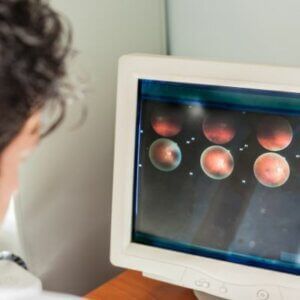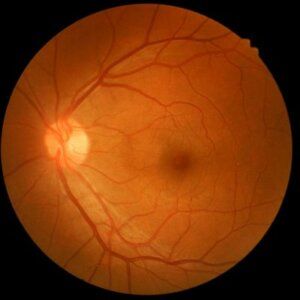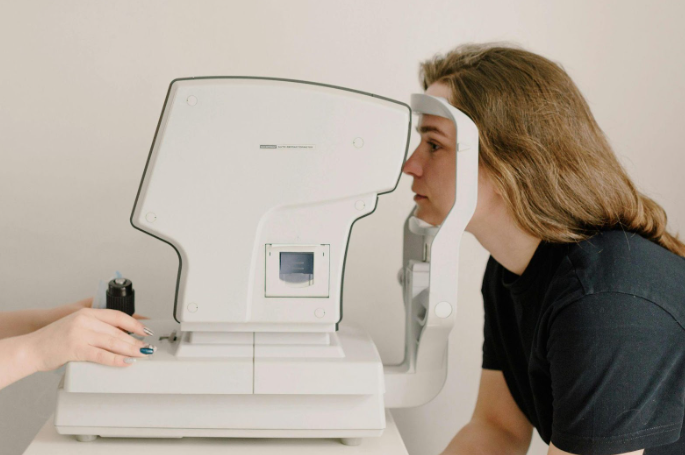Retina Problems: What Are the Symptoms, Causes, and Treatments?
The retina contains millions of light-sensitive cells known as rods and cones, along with other nerve cells, that receive and organize visual information. It sends this information through your optic nerve and on to the brain where the information is turned into the things that you see. Retinal problems such as disease can interfere with this process, making it harder to see.
Retina problems affect the retina of your eye, making it harder for the brain to create the images that we see. Common symptoms include floaters, blurred vision, and reduced vision. This can occur for a variety of reasons, including retinal tears, detachment, and diabetic retinopathy. Retinal problems can be treated in a number of ways from laser treatment to retinal implants in order to preserve your sight.
What Are Retinal Problems?
Retinal problems come in many varieties. They affect the retina of your eye, which is located in the back of your eye. This very important part of your eye is responsible for sensing light and sending visual information to the brain. Most retinal problems manifest themselves with visual symptoms, making them easier for you to spot that something is wrong.
Some retinal problems are treatable or preventable. The type of treatment you receive and its outcomes depend on factors such as the type of problem that you have and your goals. In some cases, this may be to slow or even stop a disease or infection. For others, the strength of the retina can be preserved or even restored along with your vision.
It’s incredibly important to seek treatment if you suspect that you’re having retina problems. Failure to do so can result in significant vision loss and even blindness. Our team of Knoxville eye surgeons is here to help you with whatever problems that you may have, providing treatment for your retina problems and preserving your sight for years to come.
Click here to meet our experienced team of Knoxville eye doctors!
Symptoms of Retinal Problems
Symptoms of retinal problems are similar since they affect the same part of the eye. This can be helpful for you in knowing that something is wrong with your retina. However, you will need to see one of our Knoxville eye specialists to confirm a diagnosis and develop a treatment plan.
Retinal problems often manifest themselves in your field of vision, alerting you that something is wrong. Common symptoms of retinal issues include:
- Floating specks or cobwebs
- Wavy or blurred lines
- Defects in your peripheral vision
- Loss of vision
It’s important to keep in mind that both of your eyes have retinas. This means that one of your eyes may be functioning normally while the other is having retinal problems. To narrow down which is having the problem, simply close one eye and look through the other, repeating the process with the opposite eye to determine which is malfunctioning.
Causes of Retinal Problems
Problems with your retina can occur for many different reasons. Common retinal issues include :
- Retinal tears
- Retinal detachment
- Diabetic retinopathy
- Epiretinal membrane
- Macula hole
- Retinitis pigmentosa
Retinal tears are the result of the clear liquid in the center of your eye (the vitreous ) shrinking and pulling at the lining on the back of the retina. This can eventually break the tissue, resulting in floaters and light flashes. Retinal tears may also be due to trauma. Retinal detachments occur when fluid collects below the retina and passes through it, usually due to a tear, lifting the retina away from the underlying tissue.
Diabetic retinopathy causes the tiny blood vessels in the back of your eye to deteriorate. Fluids begin to leak under the retina resulting in swelling and distorted vision, and possibly new defective vessels to grow and leak. An epiretinal membrane is a tissue-like scar or membrane that forms on the retina. As it pulls on the retina, it can make objects appear crooked or blurry.
Macular holes form in the center of the retina due to poor traction or because of an injury. Macular degeneration involves the deterioration of the center of your retina and comes in two types — wet and dry. In most cases, it starts as dry and progresses to wet. Retinitis pigmentosa is an inherited disease that causes you to slowly lose peripheral and night vision.
To learn more about retinal diseases and related eye conditions, click here !
Treating Retinal Problems
When treating retinal problems, the primary goal is to slow the progression of the problem. From there, our team of trained eye surgeons focus on preserving, improving, or even restoring lost vision if possible. Treatments can vary depending on your condition, but your Knoxville ophthalmologist will be able to diagnose the problem and develop a treatment plan for you.
Common forms of retinal treatment include:
- Laser therapy
- Shrinking defective blood vessels
- Freezing (cryopexy)
- Injecting air or gas into the eye
- Indenting the eye’s surface
- Removing and replacing fluid from the eye
- Injecting medicine into the eye
- Installing a retinal implant
Your eye doctor will make sure to discuss which form of treatment is best for your condition. This will include what to expect during your procedure, how to prepare, as well as how to recover. Make sure to follow your eye surgeon’s directions to ensure that you have the best retinal procedure possible with the best outcomes.
Are you in need of retinal surgery in Knoxville, TN? Contact us today to schedule your appointment!
When retina problems develop, they make it much harder for the optic nerve to send information to the brain and create the images we see. This can manifest itself as eye floaters, wavy lines, and reduced vision. Retina problems can occur for a variety of reasons, such as a torn or detached retina, or a hole in the macula. Fortunately, treatments are available that can slow or even stop their progression and preserve your sight.
Baptist Eye Surgeons is an ophthalmological practice in Knoxville, TN, and Morristown, TN. Give us a call at 865-579-3920 for more information or to schedule an appointment .





